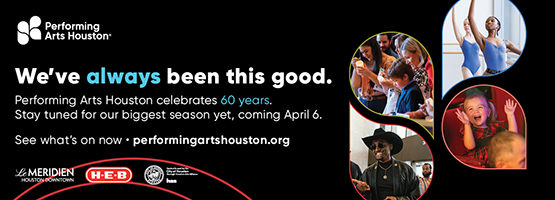Remember the age-old maxim, Know Thyself? Dallas’ Quinn Mason is crystal clear on his identity as a composer.
That’s where Mason’s work is, too. The Utah Symphony will premiere his Sonorous, a trombone concerto, in February. He’s busy now with Every New Day, a piano concerto that new-music specialist Lara Downes will premiere with the New Haven (Conn.) Symphony in May. In the meantime, a youth orchestra will treat Mason to the first performance of his music at Carnegie Hall, and other works of his will bubble up across the United States.
Mason began studying the piano in school when he was around 10 years old. He enjoyed improvising, he says, and that may have been his start as a composer. But a concert by the Dallas Symphony Orchestra also helped set his course.
“I listened to the radio a lot,” Mason recalls. “I used to live near a thrift store that carried classical music recordings. It was there that I first heard recordings by Herbert von Karajan and the Berlin Philharmonic, and stuff like the Mozart symphonies and the Beethoven symphonies.”
“Every time I listen to Beethoven’s Fifth Symphony, it’s almost like he’s there speaking to us,” he continues. “It’s phenomenal, the power that piece still has, 200 years after it was written. You listen to Stravinsky’s The Rite of Spring—it’s my favorite piece, by the way—and it’s almost like he’s there beating us over the head. Man, the power that piece has. It’s over 100 years old, but it doesn’t feel like it.”
As Mason was getting his first taste of all that, he served as percussion-section leader in the North Dallas High School band, whose director became a mentor—giving him opportunities to compose and conduct. A week after graduation, the budding musician started classes at Richland College. “I got no summer break that year,” he says, with zero regret in his voice. Prizes in competition contests gave his career its first impetus.

1 ⁄7
Quinn Mason with Matthew Troy at the Western Piedmont Symphony, November 2022. Photo courtesy of the artist.

2 ⁄7
Quinn Mason at ROCO’s Rise Up program at Asia Society Texas Center. Photo by Violeta Alvarez.

3⁄ 7
Quinn Mason lecturing before the world premiere of his Heroic Overture by the University of Vermont Orchestra, November 2022. Photo courtesy of the artist.

4 ⁄7
Quinn Mason conducting the Houston Ballet Orchestra, June 2022. Photo by Lawrence Elizabeth Knox, courtesy of Houston Ballet.

5 ⁄7
Quinn Mason teaching conducting at a Hartford, CT area middle school, October 2022. Photo courtesy of the artist.

6 ⁄7
Quinn Mason conducting the Penn State Philharmonic, February 2022. Photo courtesy of the artist.

7 ⁄7
Quinn Mason conducting the National Symphony Orchestra at the Kennedy Center, April 2023. Photo by Jati Lindsey.
No diploma? No problem.
“You know what? Nobody ever asks about it,” Mason says. “When it comes to my profession, I’m now almost 10 years into it. It’s about whether you can do the work. Can you show up? Do you have the product—the product that satisfies the audience, the orchestra, the players? If you conduct, do you know the music? Do you have the technique? Nobody asks for a degree.”
A teacher of Mason’s once told him to aim for music that communicates “from soul to soul,” he recalls. That resonated with him.
“I started … creating music that reflected my own experiences in the world—but in a way that could connect with people who have never met me or who have never heard my music before,” Mason says. “It’s music that I hope one hears and latches onto and says, ‘I hear myself in that.’”
In his time left over after composing, Mason has kept cultivating his skills at conducting, which he first tried in high school. In workshops and festivals, he has coached with podium veterans such as Marin Alsop, former director of the Baltimore Symphony, and Miguel Harth-Bedoya, former leader of the Fort Worth Symphony. The Dallas Symphony, Houston Ballet and an array of other U.S. groups have enlisted Mason as guest conductor. He sees this as more than a sideline.
-STEVEN BROWN





